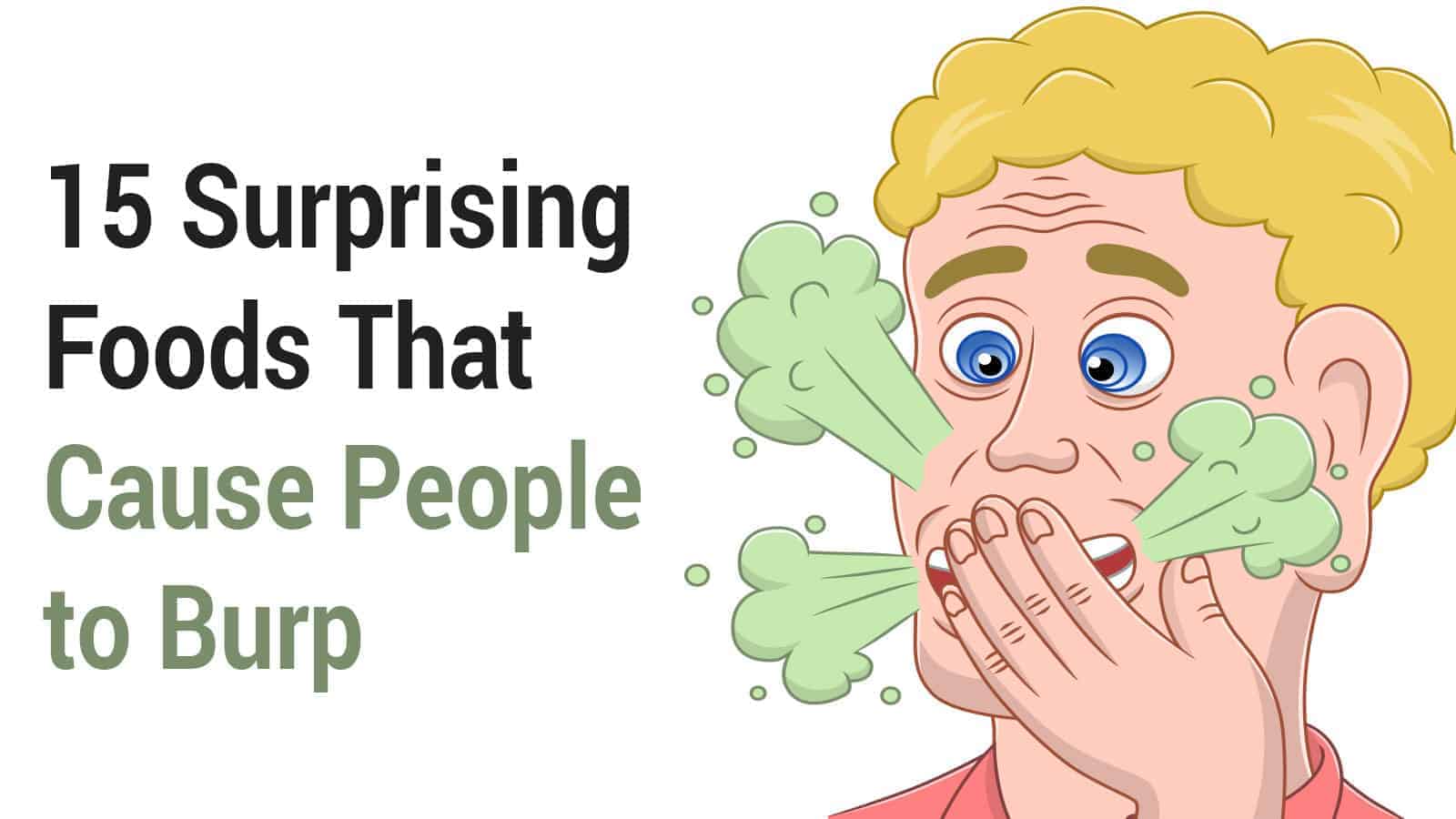When it comes belching, we all burp from time to time. And some might argue doing so is part of the human experience. To understand why this occurs, it helps to take a look at this involuntary action from a physiological standpoint.
In many cases, burping occurs when we swallow too much air and that air then becomes stuck in the esophagus, a muscular tube that connects the mouth to the stomach. When this happens, the body will push any air still in the stomach out through the mouth. And it will do so with enough force to cause belching. However, for some individuals, underlying health problems or their choice in foods will cause belching as well.
Can Excessive Belching Signify a Serious Health Problem?
Something to note when it comes to the human body is that it has an uncanny way of alerting you whenever something is wrong, often by triggering specific symptoms. And the digestive system is no exception in this regard.
According to a study published by Harvard Health Publishing, excessive burping can sometimes be a sign of gastroesophageal reflux disease. Additionally, it can also point to irritable bowel syndrome (IBS), lactose intolerance, and stomach ulcers. In cases where excessive burping stems from gastroesophageal reflux disease, it can indicate that pre-cancerous changes are taking place in the esophagus, according to Dr. Roshini Raj, an assistant professor of medicine with NYU Langone Medical Center.
So while an occasional burp is a natural bodily function, excessive burping can sometimes be a sign of a severe health problem requiring prompt medical attention.
15 Foods That Make You Burp: What You Should Know Before You Eat
Many of the foods that cause flatulence are the same ones that can cause or make belching worse. That being said, some of these foods include the following:
1. Beans
Because they contain raffinose, a soluble sucrose derivative, legumes not only cause you to burp but also fart.
According to the Cleveland Clinic, a nonprofit academic medical center, beans that should be limited by those seeking to keep gas-induced burps and farts to a minimum include kidney beans and black beans as well as garbanzo, lentils, and pinto beans.
Of course, you shouldn’t avoid beans altogether as they do offer significant nutritional value. As a staple in the Mediterranean diet, these tiny, delicious legumes can help protect against certain cancers, cardiovascular disease, dementia, diabetes, and a host of other chronic illnesses, according to a study published by the National Institutes of Health.
2. Cruciferous Vegetables
Although cruciferous vegetables, such as brussels sprouts, cauliflower, and broccoli, contain fiber that can help keep you regular, consuming too much of them can also cause excessive gas. As the body tries to rid itself of this gas, it can lead to unpleasant belching and farting.
Fortunately, it is possible to reap the health benefits that come with adding more of these vegetables to your diet while keeping gas to a minimum. According to the International Foundation for Functional Gastrointestinal Disorders, consuming cooked cruciferous vegetables rather than eating them raw, can go a long way toward keeping gas under control.
Similar to beans, cruciferous vegetables contain gas-causing raffinose. Cooking them breaks down raffinose and minimizes the gassiness would otherwise come from eating them raw.
3. Dairy
While calcium found in milk, butter, cheese, and other dairy products can help strengthen teeth and bones, these same foods can also cause digestive problems, especially in those who are lactose intolerant. In short, dairy contains a form of sugar known as lactose that can be difficult to digest. When dairy-based foods are not properly digested, it can lead to bloating, constipation, and gas, and much more. To properly digest dairy, the body must produce a sufficient amount of lactase. For those unfamiliar with lactase, it is an enzyme responsible for the biochemical reaction needed to break down foods that contain dairy. And this is not physiologically possible for those who are lactose intolerant. Therefore, when they consume even small amounts of food that contain dairy, they quickly regret ever doing so.
4. Beer
If you enjoy beer, you’re probably well aware that consuming too much of it causes excessive belching. And this is because beer, much like soda, releases carbon dioxide gas in the body. In response, the body attempts to rid itself of this gas by causing you to belch.
5. Fruit
Most nutritionists, dieticians, and physicians will agree that fruit, while healthy, can take a toll on an individual’s digestive system. And this has a lot to do with sorbitol, a sugar alcohol that contributes to the sweet taste associated with fruit but is metabolized slowly in the body. The slow metabolization process can cause belching and may also leave some people struggling with severe gassiness. Some of the fruits that contain large amounts of sorbitol include the following:
- Apples
- Cherries
- Apricots
- Peaches
- Pears
- Prunes
- Dates
6. Spicy foods
Although flavorful, most spicy foods contain a compound known as capsaicin that slows down digestion and irritates the lining of the esophagus, both of which can trigger heartburn. When this happens, it not uncommon for some individuals to start burping. Capsaicin is commonly found in the following:
- Horseradish
- Hot sauce
- Jalapeños
- Red chili paste
- Salsa
- Wasabi
7. Green bell peppers
Even though green bell peppers are not spicy per se, they contain enough capsaicin to trigger belching, flatulence, and other digestive problems.
8. Garlic and onions
Fresh garlic and onions both contain allicin, a sulfur compound that can cause heartburn, which, in turn, leads to belching. Fortunately, dehydrated garlic and onions, which contain little to no allicin, can make food just as flavorful without causing digestive problems.
9. Acidic foods
If you’re already prone to excessive belching, it would be a good idea to avoid or limit your intake of acidic foods, such as fish, grains, beef, and turkey, for example. These particular foods can cause more acids to form in the body, which can lead to acid reflux, belching, heartburn, and many other digestive problems.
10. Fried food
Although fried chicken, French fries, onion rings, and other fried foods might be deliciously satisfying, they can cause belching. For those who might not be aware, fried foods are high in trans fat. And this type of fat takes longer for the body to digest. It can also increase the risk of developing high cholesterol and heart disease, especially when eaten regularly.
11. Tomato sauce
If you’re a fan of pizza and spaghetti, you should know that they both contain very acidic tomato sauce. That said, consuming too much of these foods can lead to acid reflux, heartburn, and excessive belching. According to the Center for Food Safety and Applied Nutrition, the pH, which denotes the acidity in foods and drinks, in a single can of tomato sauce is between 3.5 and 4.7. When it comes to measuring pH, the lower the number, the higher the acidity.
12. Tea
Although tea usually has a calming effect and is a great way to reduce stress, consuming too much of it can cause heartburn and excessive belching, especially those teas that contain peppermint or spearmint.
13. Eggs
Even though eggs can make for a delicious breakfast, they should be either avoided or limited by those who have an egg intolerance. The high protein and sulfur-containing compounds in eggs can make it difficult for those with an egg intolerance to digest. The longer eggs remain undigested, the more likely an individual is to experience belching and other digestive problems.
14. Gluten
Gluten, which is a unique protein in wheat, rye, and barley, can cause a host of digestive problems for those with celiac disease or are otherwise sensitive to gluten. For these individuals, consuming even a small amount of gluten can cause heartburn, belching, diarrhea, indigestion, nausea, vomiting, and flatulence since they are not able to produce enough of the enzymes needed to digest it properly.
15. Gum and Candy
While not technically a food per se, gum as well as candy, if chewed or sucked on for a long time, can cause belching. Engaging in either of these two acts often leads to swallowing excessive air, which negatively affects the digestive system.
Final Thoughts on the Foods That Cause People to Burp
In summary, many of our favorite foods can trigger and intensify belching. The best way to go about getting things under control is by making a few changes to your diet. However, if the belching continues, it would be a good idea to schedule an appointment with a physician as soon as possible.

















 Community
Community

